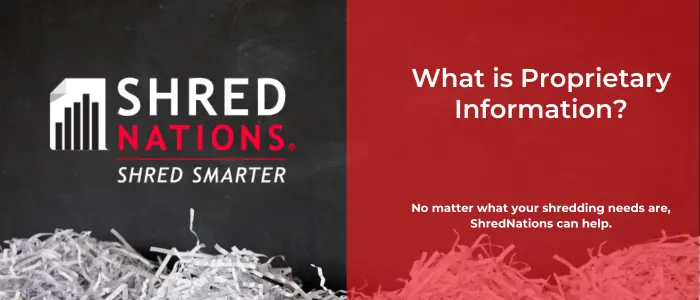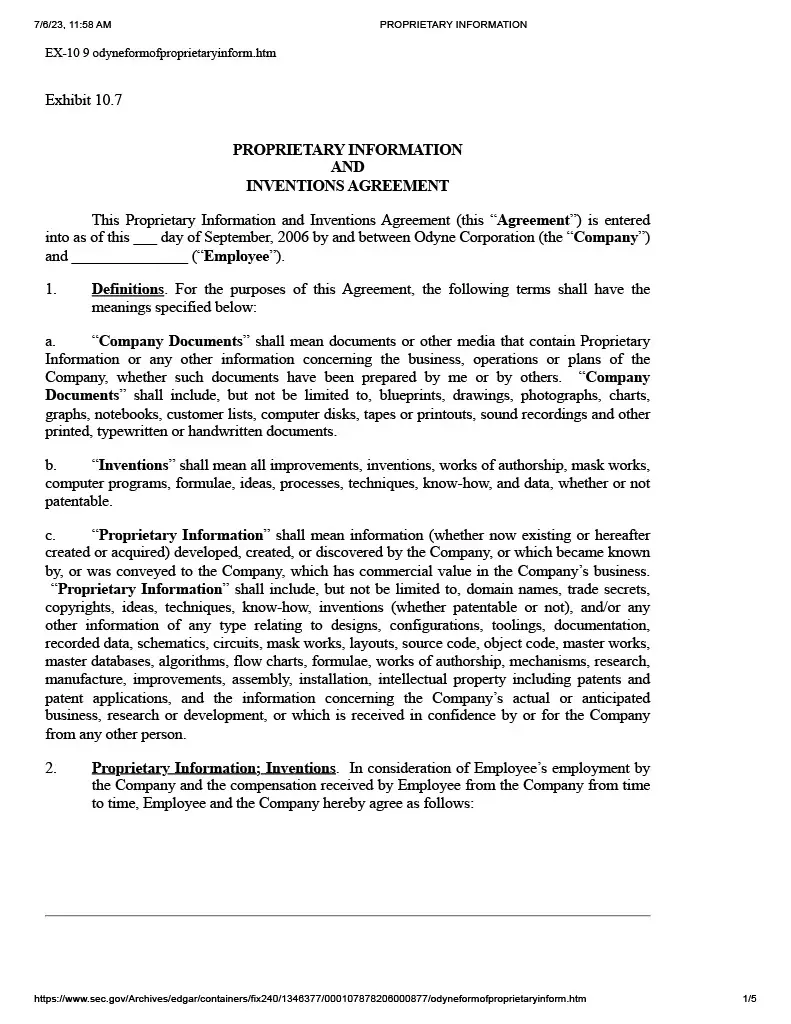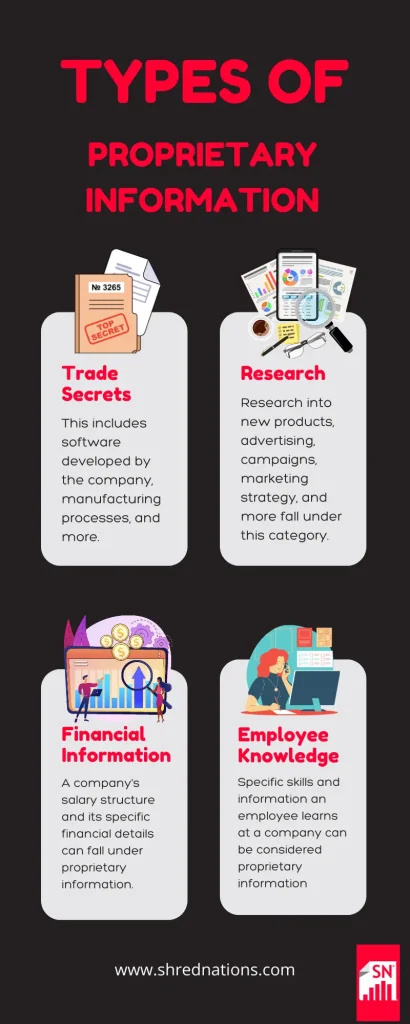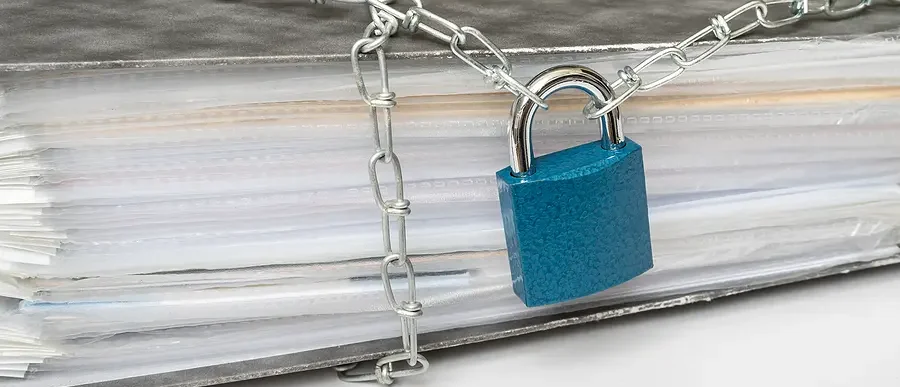
Companies, no matter the industry, produce tons of information and data every day. More of that information than we like comes in the form of follow-up emails, reply-all chains, and other communication that while important, won’t ruin your business if it comes out – but it might mean that Mark actually replies to emails in a timely manner. However, among that, there is a subsection that’s important and shouldn’t get out under any circumstances – proprietary information – but what exactly is it?
The Definition of Proprietary Information

What proprietary information is to a business tends to depend on what they do. Software code for a tech company is more than likely its most important and well guarded tech secret, while a manufacturer likely feels the same way about their production processes. A restaurant might not particularly care about the code running their POS system, but they’ll go to war over their Bolognese recipe.
What unites all these businesses is the need to keep their unique edge against their competitors secret. That information, that edge, is what proprietary information really is. Many businesses work hard to protect this information, through non-disclosure agreements, non-compete clauses, and other contractual guarantees that prevent their employees from disclosing that information to their competitors.
Types of Proprietary Information

What a company classifies as proprietary information is generally up to them to decide, but it often falls into a few categories.
Trade Secrets and Company Processes
This category is likely the first that comes to mind when someone thinks of proprietary information. This includes software developed by companies, unique manufacturing processes and production methods, recipes, formulas, and even marketing strategies.
Research
Research, groundbreaking or otherwise, almost always falls under the category of proprietary information. This can vary from research on new drugs by pharmaceutical companies, to researching new recycling methods, or even research into new advertising campaigns. However, research that is fully funded by the public (taxpayers) is not considered proprietary information.
Salary and Financial Information
While employees are legally allowed to disclose their salaries, a company’s salary structure and specific information is proprietary. A company’s financial information is a bit murkier, as public companies are required to disclose a significant portion of their financial information to shareholders, but for private companies, their financial information can be considered proprietary, assuming it has not been disclosed publicly.
Employee Knowledge and Skills
Proprietary information based on an employee’s knowledge or skills tends to be a bit more industry specific. For example, garden leave is often offered to employees in the finance industry, as their knowledge gained on the job can be considered as proprietary information. In the tech industry, non-competes are common, as the employees gain skills and knowledge relating to the software a company is building and selling, and the company doesn’t want that proprietary information going to competitors.
How to Protect Proprietary Information
Protecting proprietary information comes through a number of ways. How you protect that proprietary information depends on what form it is taking. Protecting the intricacies of a manufacturing process requires a different approach than client information stored in an employee’s head.
For physical information, data security and access control is the most important. This comes in making sure that whether the information is on the cloud or in physical form, that it’s behind proper security protocols, and that any temporary copies made are destroyed properly. Access protocols help ensure that no one sees the information that isn’t supposed to, whether in physical or digital form.
For proprietary information that’s employee centric, this comes in the form of policies like non-competes, non-disclosure agreements, and garden leave. It’s more difficult to protect this type of information, and the laws around what constitutes proprietary information when it comes to the skills and knowledge of an employee often change based on what state or country your business operates in.
Keep Your Proprietary Information Secure with Certified Destruction from Shred Nations
While we can’t enforce a non-compete clause, we can securely destroy any physical information your company needs to dispose of. Shred Nations works with a nationwide network of shredding partners to help businesses and individuals dispose of their documents, electronics, and more with convenience and security. Give us a call at (800) 747-3365, and we’ll connect you to an affordable shredding solution near you in just minutes.












